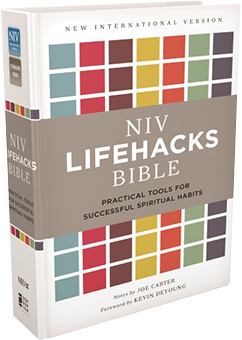

Throughout the Bible we most often find God’s people turn to fasting as the natural, inevitable response to a grievous sacred moment in life, such as death, sin and tragedy. But other times a fast is not a spontaneous reaction and we have time to prepare to respond both physically and spiritually.
Fasting is not an end unto itself, but a means of focusing our minds and bodies for a spiritual reason. Whenever you fast, do so for a reason that is mentioned or modeled in the Bible. Here are ten primary purposes for fasting mentioned in Scripture:¹
Numerous incidents in the Old Testament connect fasting to prayer, especially intercessory prayer. Fasting does not change whether God hears our prayers, but it can change our praying. As Arthur Wallis says, “Fasting is calculated to bring a note of urgency and importunity into our praying, and to give force to our pleading in the court of heaven.”²
As with prayer, fasting to seek God’s guidance isn’t done to change God but to make us more receptive to his guidance.
Expressing grief is one of the primary reasons for fasting. Ever notice that when you’re moved to tears by grief you lose the urge to eat? When we grieve, our family and friends often have to plead with us to eat because our body’s appropriate response to grief is to fast. A prime example occurs in 2 Samuel 1:12, where David and his men are described as having “mourned and wept and fasted till evening” for their friends, their enemies and their nation.
Another common reason for fasting in the Old Testament was to seek deliverance from enemies or circumstances. In Scripture, this type of fast is generally carried out with other believers.
This type of fasting helps us to express grief over our sins and shows our seriousness about returning to the path of godly obedience.
“Remember that fasting itself is not humility before God,” reminds Donald Whitney, “but should be an expression of humility.”³
As with Nehemiah, fasting can be a tangible sign of our concern over a particular work God is doing.
We can use time we’d normally spend eating to fast and minister to others.
Fasting can help us focus when we are struggling with particular temptations.
Fasting can show, as John Piper says, that “what we hunger for most, we worship.”⁴
How should we equip ourselves when God calls us to “declare a holy fast”? Here are some things to consider as you prepare for fasting:
Pray and confess your sins
A necessary step before fasting is to humble yourself before God (see Psalm 35:13) and confess your sins (see 1 Samuel 7:6). Prayer should be our sustenance throughout the fast, but it is imperative we begin the fast with a contrite heart.
Turn to Scripture
Spend additional time meditating on God’s Word, before and during the fast.
Keep it secret
Fasting is unbiblical and even spiritually harmful when we do it to show off our spirituality (see Matthew 6:16 – 18) or when we focus more on our own fasting than on the clear needs of others (see Isaiah 58:1 – 11). Don’t boast about your fast; tell people you won’t be eating only if necessary. Fasting should not be done when imposed for false motives (see 1 Samuel 14:24-30).
Prepare your body
Fasting, especially for days or weeks, can have unexpected and even detrimental effects on your health. There is no scriptural warrant for harming yourself to undergo a fast. Be sure to consult a doctor before starting any fasting regimen to make sure you can fast in a healthy manner.
Fasting is an appropriate bodily reaction to the grievous state of our soul. If it is done correctly you can expect many results, including growing closer to God, feeling more solidarity with those who suffer, and increasing self-control.
Rather than wondering whether you should fast, ask why you would want to miss out on the Father’s reward.
¹Donald Whitney, Spiritual Disciplines for the Christian Life (Colorado Springs, CO: NavPress, 2014).
²Arthur Wallis, God’s Chosen Fast (Fort Washington, PA: CLC Publications, 1993).
³Whitney, Spiritual Disciplines.
⁴John Piper, A Hunger for God (Wheaton, IL: Crossway, 1997).
Devotional drawn from the NIV Lifehacks Bible ebook.

Includes the complete NIV text along with 365 articles that provide practical tips and strategies for applying scriptural insights and spiritual practices to daily life.